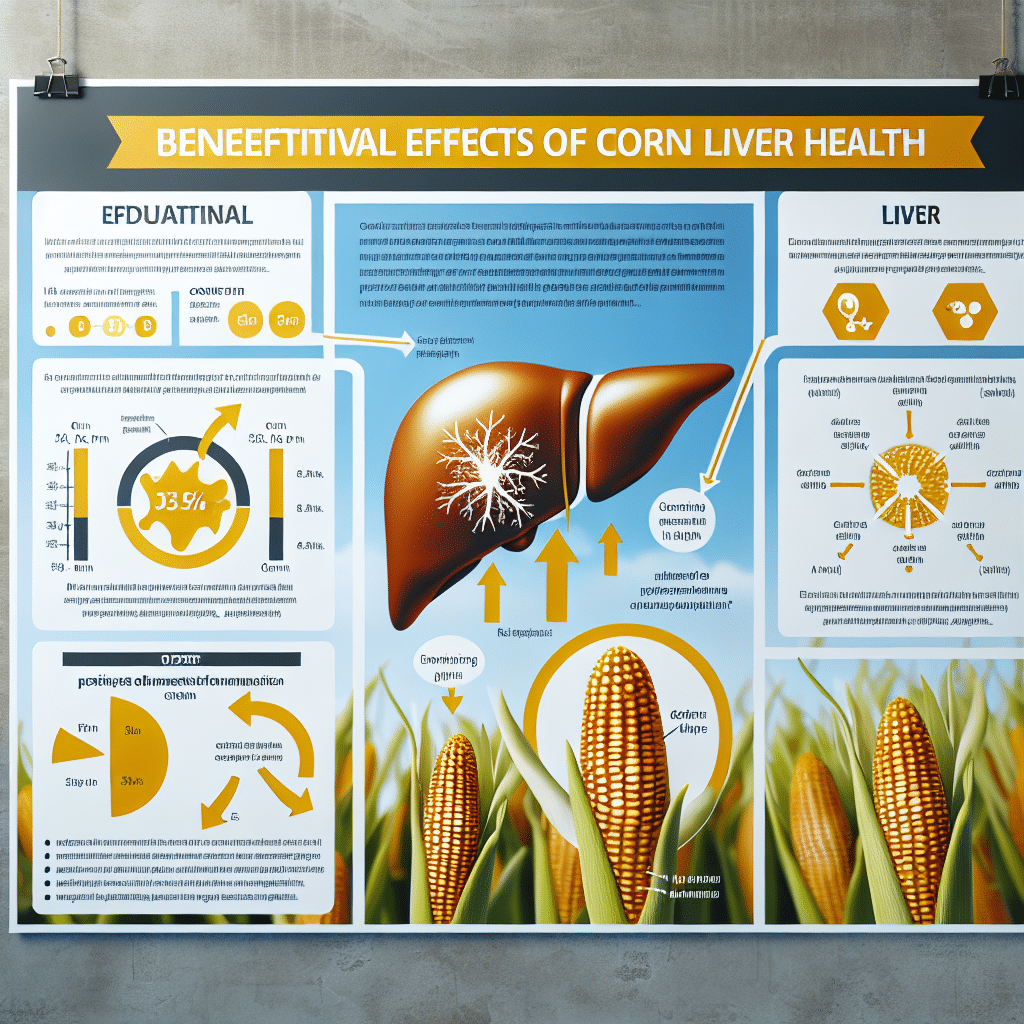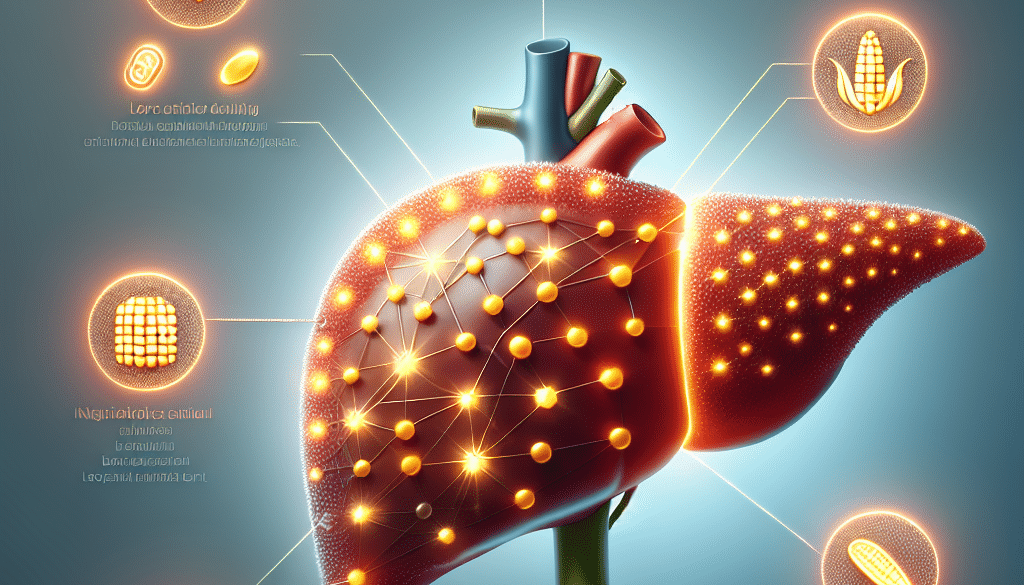Is Corn Good For Liver?
-
Table of Contents
- Is Corn Good for Your Liver? Exploring the Nutritional Impact
- The Nutritional Profile of Corn
- Benefits of Corn for Liver Health
- Potential Risks and Considerations
- Scientific Research on Corn and Liver Health
- Case Studies and Statistics
- Conclusion: Balancing Corn Intake for Liver Health
- ETprotein: Enhance Your Diet with High-Quality Protein Products
- About ETprotein:
Is Corn Good for Your Liver? Exploring the Nutritional Impact

The liver is a vital organ that plays a crucial role in numerous bodily functions, including detoxification, protein synthesis, and the production of biochemicals necessary for digestion. Given its importance, maintaining liver health is essential for overall well-being. One of the ways to support liver health is through diet. Corn, a staple food in many parts of the world, is often a subject of debate when it comes to its health benefits. This article delves into whether corn is good for the liver and how it impacts liver health.
The Nutritional Profile of Corn
Corn, also known as maize, is a cereal grain that is rich in vitamins, minerals, and fiber. It contains essential nutrients such as vitamin C, thiamine (vitamin B1), folate, phosphorus, magnesium, and potassium. Additionally, corn is a source of antioxidants like zeaxanthin and lutein, which are beneficial for eye health. The fiber content in corn can aid in digestion and help maintain a healthy weight.
Benefits of Corn for Liver Health
When considering the effects of corn on the liver, it’s important to look at its components and how they may benefit this organ:
- Fiber: The dietary fiber in corn can help in managing weight and reducing fatty liver disease risk, a condition where fat builds up in the liver cells.
- Antioxidants: Antioxidants in corn, such as vitamin C and carotenoids, can protect the liver from oxidative stress and potential damage.
- B Vitamins: Thiamine and folate are crucial for liver function, and their deficiency can lead to liver complications.
However, it’s important to consume corn in moderation and as part of a balanced diet to reap these benefits.
Potential Risks and Considerations
While corn has its benefits, there are also potential risks and considerations to keep in mind:
- High Glycemic Index: Corn, especially in processed forms like corn syrup, has a high glycemic index, which can lead to spikes in blood sugar levels and may indirectly affect liver health.
- Caloric Content: Corn is relatively high in calories, and overconsumption can contribute to weight gain, a risk factor for non-alcoholic fatty liver disease (NAFLD).
- Genetically Modified Organisms (GMOs): Much of the corn produced today is genetically modified, which some people prefer to avoid due to concerns about long-term health effects.
Choosing organic, non-GMO corn and consuming it in whole form rather than processed can mitigate some of these risks.
Scientific Research on Corn and Liver Health
Several studies have investigated the relationship between corn consumption and liver health. For instance, research has shown that the consumption of whole grains, including corn, is associated with a lower risk of NAFLD. Another study suggests that the antioxidants in corn can help reduce liver inflammation and fibrosis.
However, more research is needed to fully understand the impact of corn on liver health, especially in the context of different dietary patterns and individual health conditions.
Case Studies and Statistics
Case studies on individuals with liver conditions who have incorporated corn into their diets provide anecdotal evidence of its benefits. For example, some patients with NAFLD have reported improvements in liver enzyme levels after increasing their intake of whole grains like corn.
Statistics from dietary surveys also indicate that populations consuming diets rich in whole grains, including corn, tend to have lower rates of liver diseases. However, these observations must be interpreted with caution, as they do not establish a direct cause-and-effect relationship.
Conclusion: Balancing Corn Intake for Liver Health
In conclusion, corn can be part of a liver-friendly diet when consumed in moderation and as part of a balanced diet. Its fiber content, antioxidants, and B vitamins offer potential benefits for liver health. However, it’s essential to be mindful of the form in which corn is consumed and the overall dietary pattern. Processed corn products with high sugar content should be limited to minimize the risk of adverse effects on liver health.
The key takeaways for maintaining liver health with corn include choosing whole, organic, non-GMO corn, moderating intake to avoid excessive calories, and incorporating a variety of other whole grains and liver-supportive foods into your diet.
ETprotein: Enhance Your Diet with High-Quality Protein Products
If you’re looking to complement your diet with additional protein sources that are good for your liver, consider ETprotein’s range of organic bulk vegan proteins. These high-quality protein products, including rice protein, pea protein, and various seed proteins, are non-GMO, allergen-free, and come with a neutral taste, making them an excellent addition to a liver-friendly diet.
ETprotein’s L-(+)-Ergothioneine (EGT) offerings, available in various grades, are also worth exploring for their potential liver health benefits. EGT is known for its antioxidant properties, which can help protect the liver from oxidative stress.
For those interested in supporting their liver health through diet, ETprotein’s products provide a valuable resource. To learn more about their offerings or to sample their products, please contact ETprotein and email sales(at)ETprotein.com today.
About ETprotein:
ETprotein, a reputable protein and L-(+)-Ergothioneine (EGT) Chinese factory manufacturer and supplier, is renowned for producing, stocking, exporting, and delivering the highest quality organic bulk vegan proteins and L-(+)-Ergothioneine. They include Organic rice protein, clear rice protein, pea protein, clear pea protein, watermelon seed protein, pumpkin seed protein, sunflower seed protein, mung bean protein, peanut protein, and L-(+)-Ergothioneine EGT Pharmaceutical grade, L-(+)-Ergothioneine EGT food grade, L-(+)-Ergothioneine EGT cosmetic grade, L-(+)-Ergothioneine EGT reference grade and L-(+)-Ergothioneine EGT standard. Their offerings, characterized by a neutral taste, non-GMO, allergen-free attributes, with L-(+)-Ergothioneine purity over 98%, 99%, cater to a diverse range of industries. They serve nutraceutical, pharmaceutical, cosmeceutical, veterinary, as well as food and beverage finished product distributors, traders, and manufacturers across Europe, USA, Canada, Australia, Thailand, Japan, Korea, Brazil, and Chile, among others.
ETprotein specialization includes exporting and delivering tailor-made protein powder and finished nutritional supplements. Their extensive product range covers sectors like Food and Beverage, Sports Nutrition, Weight Management, Dietary Supplements, Health and Wellness Products, and Infant Formula, ensuring comprehensive solutions to meet all your protein needs.
As a trusted company by leading global food and beverage brands and Fortune 500 companies, ETprotein reinforces China’s reputation in the global arena. For more information or to sample their products, please contact them and email sales(at)ETprotein.com today.














